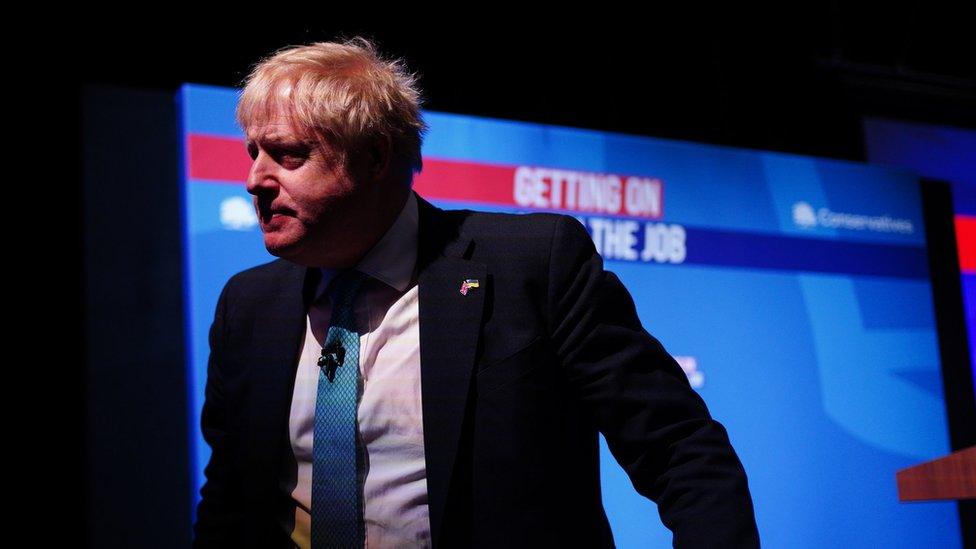A week that will shape years ahead
- Published
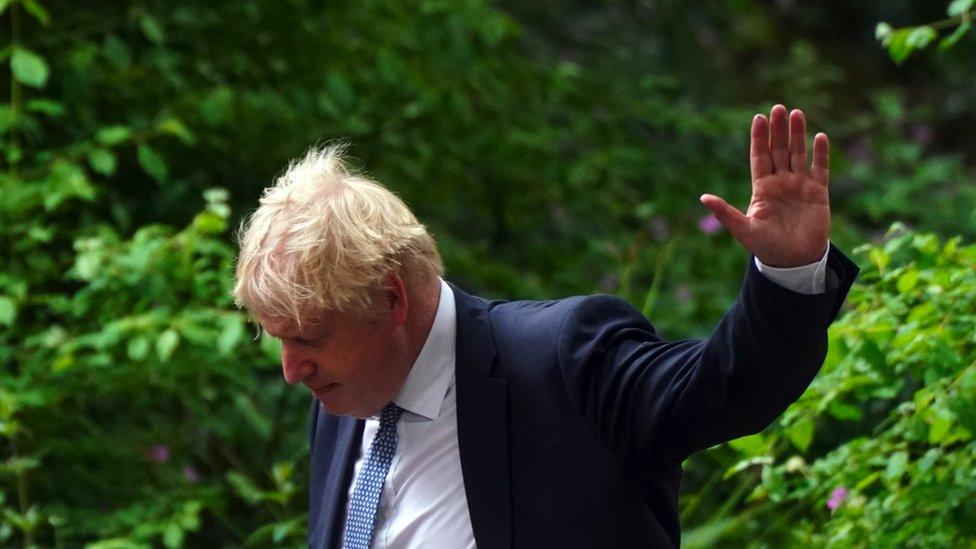
This week Boris Johnson stepped down as an MP after seeing a report from the Commons Privileges Committee investigating whether he misled Parliament
A busy day in the news cycle represented an inflection point in British political economy, as the main contenders for Downing Street power staked out their battlegrounds.
Inflection points in current affairs are rarely discernible until long after.
But 24 hours at the end of the week past looked like one such point worthy of note, even while it was under way.
Several factors coincided to shape the years ahead, particularly the Westminster election that must take place by January 2025, and looks most likely in autumn of next year.
1.Bye-bye Boris?
Grabbing the limelight, as ever, Boris Johnson marked the end of the Boris Johnson era - "at least for now".
There are three things those four words could signify - he's thinking of coming back with a Trump-like insurgency; he doesn't know what he's going to do next; he wants to make lots of money writing articles and making speeches, but his currency retains its value only if he's seen as a player in politics; or a combination of all three.
The more Rishi Sunak can put memories of Boris Johnson and Liz Truss into the past, the better his chances of retaining votes and power.
2. Fiscal responsibility, industrial policy
Labour's shadow chancellor Rachel Reeves made a big shift in Labour strategy. Having promised £28bn each year this decade for its green economic plan.
She said on Friday that money will be 'ramped up' and could reach that level in the second half of the next Westminster Parliament.
Rachel Reeves says Labour will now "ramp up" its plan to spend £28bn a year on green industries
The Labour calculation is that fiscal responsibility takes priority, and its rule of bringing down debt as a share of total economic output is the test of that.
It trumps the green economic plan, even if there is an urgency for the UK to play catch-up with the US, EU and Canada.
These trading partners and economic rivals are pouring resource into green 'industrial policy' - subsidy and requirements on home-produced content to gain advantage in the race to secure a domestic base for renewable energy, battery-powered transport and hydrogen, while Americans, at least, want to make sure that China does not.
Conservatives in Britain have not yet signalled where they're going to go in response to demands from UK industry for support, if firms are not to take their investment where those subsidies are.
Tories could match the Labour plan, or choose the small-state, lower-tax route, with which they might feel more comfortable.
Labour has made its choice - seeking to neutralise the charge that it risks fiscal discipline, while backing industrial policy, at a slower rate, which may dismay those on its left and its green flank.
Tories must decide which of these Labour choices is to become a fault line - some might say 'a wedge issue' - between the two parties vying for control in Downing Street.
It's unusual for the party of government, heading into defending its position, to have done so little to stake out its battleground.
3. Atlantic trade
In Washington DC, the 'Atlantic Declaration' looked inversely proportional to the grandeur of its title.
President Biden and Prime Minister Sunak met and talked and the White House offered up a prestigious welcome.
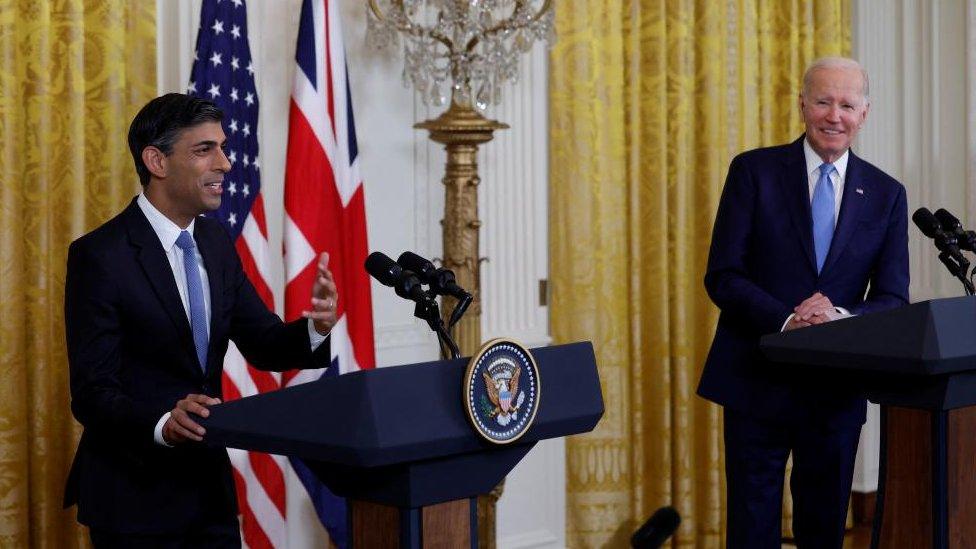
A number of small deals were done, responding to current issues, such as the question of how to tackle regulation of Artificial Intelligence.
But what was missing was the big picture deal. A comprehensive free trade deal was not only not on the table, but any expectation of it has now dropped out of Brexiteers hopes and expectations.
That represents the limited ambitions that are now set for Brexit. It apparently parks debate and dispute over where Brexit should go.
It helps to neutralise that huge issue for Labour and Conservative, and to some extent Liberal Democrats, none of whom seem to see Brexit as a vote-winner for 2024.
Only in Scotland can we expect to hear much about the costs and benefits of Brexit to feature in political debate, as the SNP seeks to pin its costs on political opponents.
4. To drill or not?
The Treasury put a floor under the windfall tax on oil and gas drilling. The offshore industry has been calling vociferously for this, and the Treasury on Friday acknowledges the point that a 75% tax, up from 40%, is not good for investment.
The UK government also explicitly recognises that less investment risks Britain becoming more dependent on imported oil and gas.
With the Ukraine war and sanctions on Russia making energy security a much bigger issue than it was, Tory ministers have judged they prefer a Britain-first policy on energy security over Boris Johnson's choices of turning the screw on new drilling for environmental reasons.
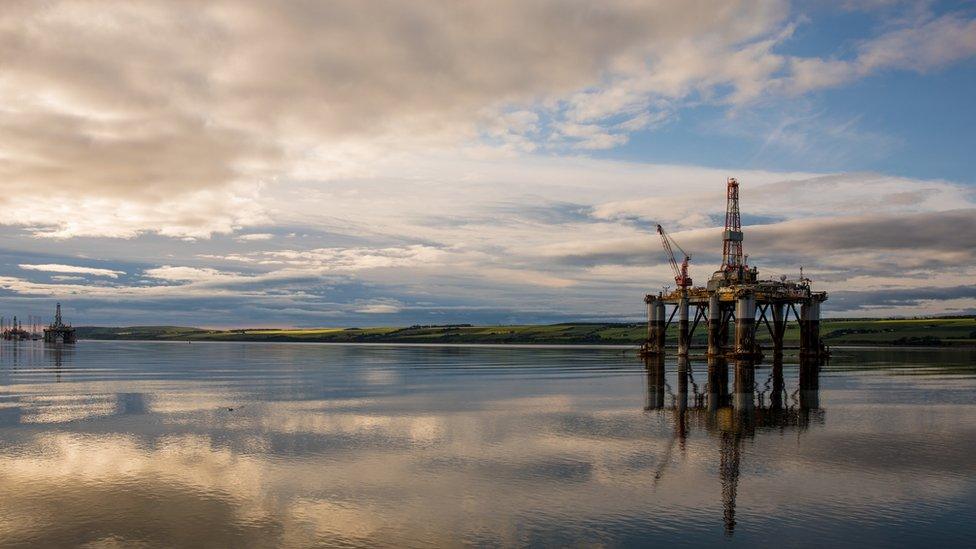
Sir Keir Starmer and Labour have made the opposite judgement - against licences for further drilling.
That carries a big political risk, at least in Scotland where offshore oil and gas continues to bring considerable employment. Labour's opponents can see an opportunity there.
And while a fault line has opened up there, it has been weakened where Labour faces the SNP, which is also minded to turn down applications to drill, at least unless it meets tough conditions of greenhouse gas mitigation.
5. Sustained inflation
Several mortgage lenders repriced or pulled their products, indicating there will be more new and higher prices on Monday.
It's a reminder of higher prices and the cooling housing market, which could dominate voters' outlook when they next get to vote.
Inflation has been expected to fall sharply by the end of this year, but the most recent figures point to core inflation, excluding energy and food, remains stubbornly high.
Related topics
- Published9 June 2023
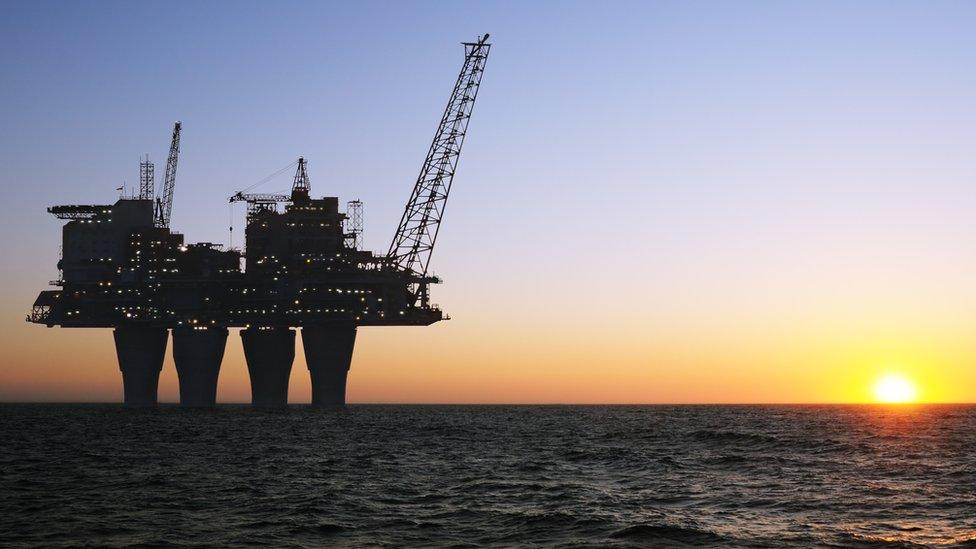
- Published10 June 2023
